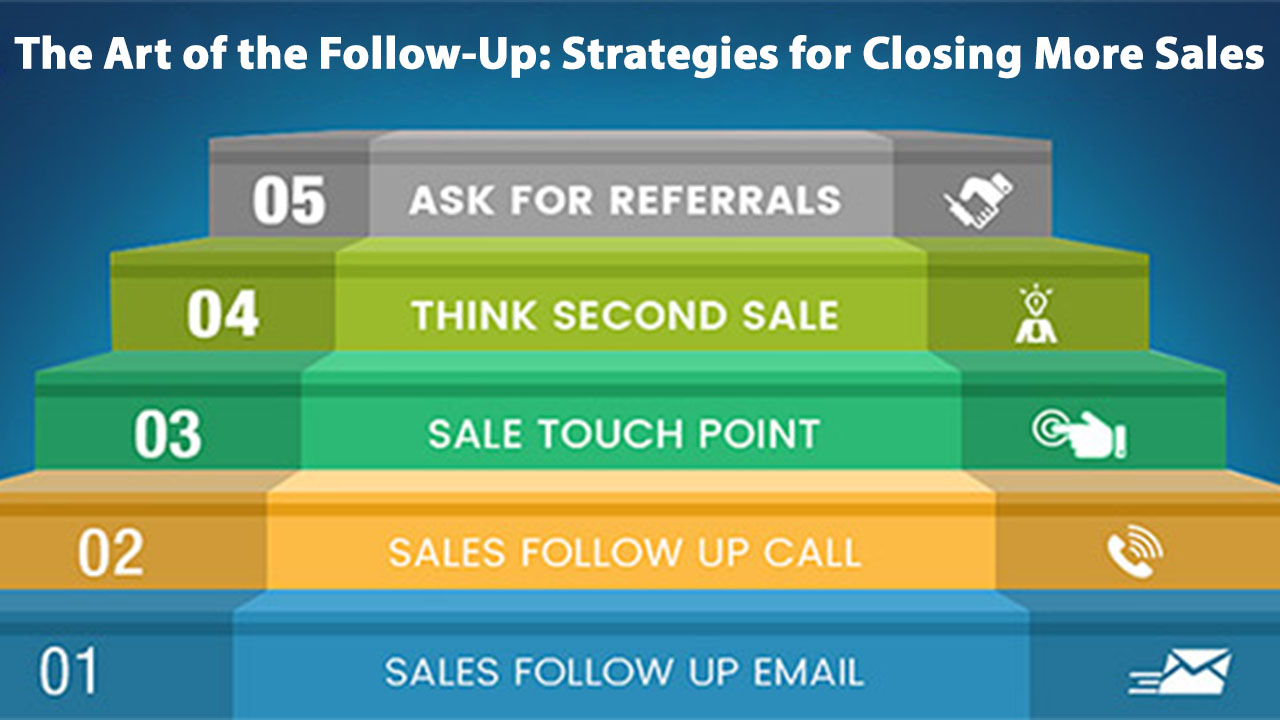The Art of the Follow-Up: Strategies for Closing More Sales

As a salesperson, your ultimate goal is to close more sales. But even if you have the best product or service, you can still lose a sale if you don't follow up effectively. Follow-up is an essential part of the sales process, and it can make all the difference between a lost sale and a closed deal.
Why Follow-Up Matters
Research shows that it takes an average of five follow-up attempts to close a sale. Yet, many salespeople give up after only one or two attempts. Following up not only shows that you're interested in helping the customer, but it also keeps you top of mind when they're ready to make a purchase.
Effective follow-up can also help you build trust and credibility with potential customers. By demonstrating your expertise and offering helpful information, you can establish yourself as a valuable resource and a trusted advisor. This can go a long way in building long-term relationships and generating repeat business.
Strategies for Effective Follow-Up
1. Have a Plan
Before you even make your initial contact with a potential customer, it's important to have a follow-up plan in place. This should include a timeline for when you will follow up, what channels you will use (phone, email, social media, etc.), and what you will say in each communication.
2. Personalize Your Communications
When following up with potential customers, it's important to personalize your communications as much as possible. This can include referencing previous conversations, mentioning specific pain points or challenges they've mentioned, and offering tailored solutions to their needs.
3. Use Multiple Channels
People have different preferences for how they like to communicate. Some may prefer email, while others prefer phone or social media. By using multiple channels, you increase your chances of reaching the customer and getting a response.
4. Be Persistent, But Not Pushy
As mentioned earlier, it can take several attempts to close a sale. However, you don't want to come across as pushy or aggressive. Strike a balance between persistence and respect for the customer's time and preferences.
5. Offer Value in Every Communication
Each time you follow up with a potential customer, offer something of value. This could be a helpful article, a relevant case study, or an invitation to a webinar or event. By providing value, you demonstrate your expertise and build trust with the customer.
Conclusion
Effective follow-up is an essential part of the sales process. By having a plan in place, personalizing your communications, using multiple channels, being persistent but not pushy, and offering value in every communication, you can increase your chances of closing more sales and building long-term relationships with customers.